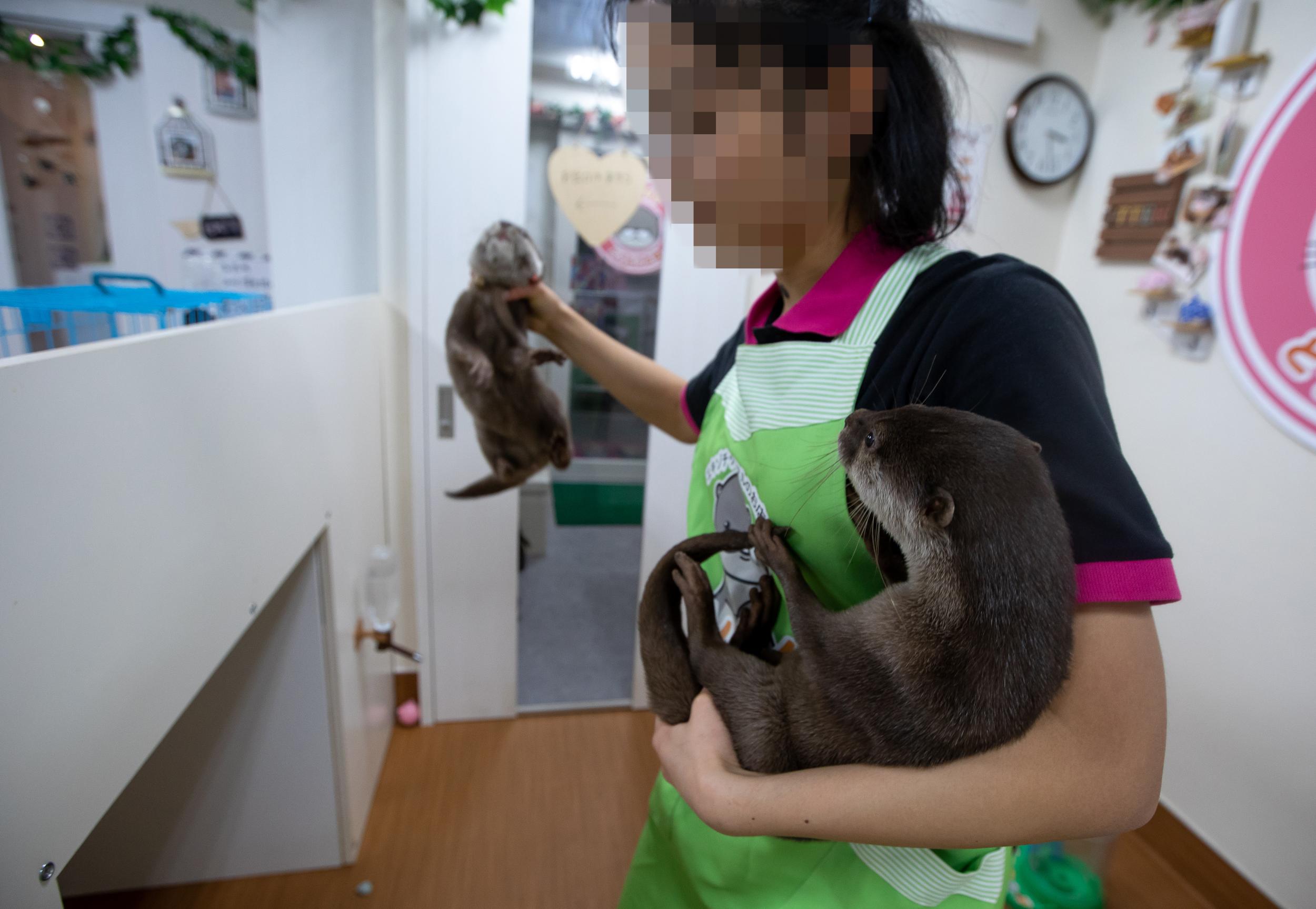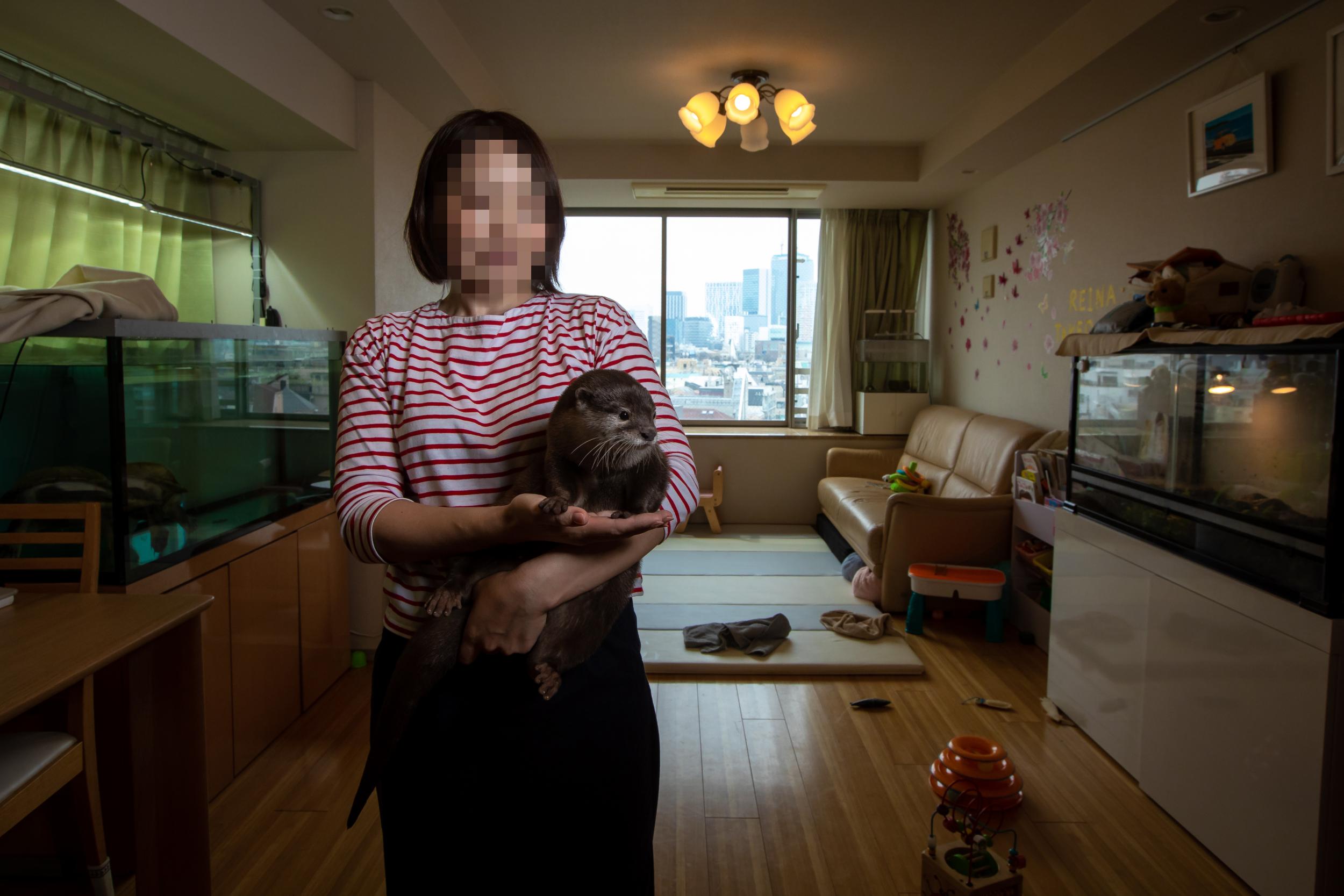Otter Instagram craze in Japan and Indonesia drives surge in deadly poaching, threatening species' survival
Cafes with the animals and vogue for buying them as pets drives growth of Facebook trading groups and illegal trafficking gangs
Your support helps us to tell the story
From reproductive rights to climate change to Big Tech, The Independent is on the ground when the story is developing. Whether it's investigating the financials of Elon Musk's pro-Trump PAC or producing our latest documentary, 'The A Word', which shines a light on the American women fighting for reproductive rights, we know how important it is to parse out the facts from the messaging.
At such a critical moment in US history, we need reporters on the ground. Your donation allows us to keep sending journalists to speak to both sides of the story.
The Independent is trusted by Americans across the entire political spectrum. And unlike many other quality news outlets, we choose not to lock Americans out of our reporting and analysis with paywalls. We believe quality journalism should be available to everyone, paid for by those who can afford it.
Your support makes all the difference.An Instagram-fuelled craze in Japan for keeping otters in cafes and as pets is driving a deadly surge in poaching the animals from the wild – driving them to the brink of extinction, investigators say.
Social media influencers who regularly post photos of their pet otters that have become famous are blamed for speeding up demand for the semi-aquatic species in many parts of Asia.
The animals’ popularity has led to a rush to open otter cafes in Japan, where customers touch, play, feed and cuddle them, as well as people buying them to keep at home.
As a result, Facebook groups with hundreds of thousands of members have sprung up, dedicated to illegally trading in otters, the undercover investigation found.
Many members are customers of the organised networks of farmers, hunters and traffickers who steal cubs from the wild, killing the parents to capture the babies, according to World Animal Protection (WAP), which carried out the investigation.
In Indonesia hunters use dogs to track down dens, then shoot, electrocute or smoke the parents out. The same is thought to happen in Thailand. In Japan some traders have set up captive breeding centres nextdoor to cafes, but most animals are still imported – changing hands for large sums of money.
Not only is the trade cruel because the stolen otters are given unsuitable homes, diets and surroundings, but worse – it is driving down populations of the species, according to the investigators.
All four species native to Southeast Asia – the Asian small-clawed, the smooth-coated, the hairy-nosed and the Eurasian otter, are already in decline from habitat loss and climate change, but now the “exotic” pet trade poses a new threat, the report says. The hairy-nosed species has plummeted by half in three decades.

In Japan, where more than a dozen animal cafes have otters, investigators found otters whimpering, shrieking and making distress calls while customers played with them.
Some animals were kept with no natural light or even without water. Others bit their claws and showed other signs of trauma, the witnesses reported.
With more dealers cashing in, online activity has grown. The largest Indonesian Facebook group for buying and selling otters has 43,000 members. Other Indonesian groups have up to 16,000 members and all are very active, the charity said.

“Despite it being illegal to hunt, trade or breed them in Thailand, the country seems to have an abundance of new-born otters quickly and readily available for sale,” according to the report.
Across the region rescue groups are struggling to keep up with the numbers of abandoned otters, which often arrive malnourished and underweight.
Just because a wild animal is cute does not mean you should take it home
Cassandra Koenen, of the charity, says: “Just because a wild animal is cute, it does not mean you should take it home with you. Unfortunately, this fact appears to be lost on many people as they are influenced by social media, and influencers showing them off as fun and cool pets.
“Once otters are in people’s homes, there is no realistic way to replicate the space and freedom these animals would have in the wild. Many animals are kept in spaces vastly smaller than their natural habitats and they don’t have the correct nutrition, even if owners have their best intentions to feed them properly.”
Investigators were also told police and government officials help the trade. “One report from Indonesia stated a government worker requested operations on otters to remove the gland that causes them to smell, to make them more appealing as pets,” according to the document.
WAP is calling on social media users not to “like” posts featuring captive otters and wants the two non-protected species to be given the highest level of protection at the next Cites meeting.

Join our commenting forum
Join thought-provoking conversations, follow other Independent readers and see their replies
Comments